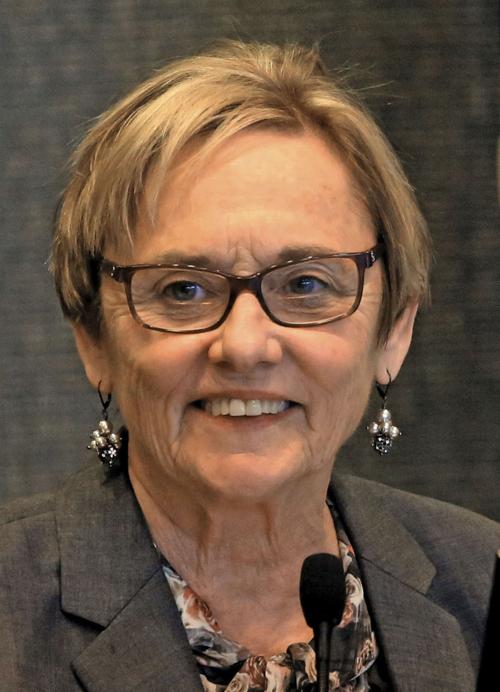Sharon Bronson
In recent years, the city of Tucson and Pima County have been working together to bring new jobs to the region, setting the stage for economic growth by investing in public infrastructure.
During the recession, cities across the country put off making much-needed capital investments. In Tucson, our streets deteriorated while the Arizona Legislature used Highway User Revenue Funds (HURF), the money local governments rely on for road repair, to balance the state’s budget.
Tucson took matters into our own hands in 2012, when city voters passed the street bonds. We’ve all seen the progress that’s been made since then, especially on Tucson’s major arterials. More than 850 lane miles of city streets have been restored. But more work remains to be done, and funding from the street bonds expires later this year.
That’s why the city is asking for a 5-year half-cent sales tax increase – to continue to restore city streets and to fund capital needs for public safety. This will be on the ballot in May as Proposition 101.
If passed by voters, Prop. 101 will use 60 percent of the funds generated for public safety – ambulances, fire trucks, patrol cars, life-saving equipment and facility repairs. The rest will be used to fix city streets.
In 2012, for the street bonds, the city published a plan showing what roads would be restored and when, and created a citizen oversight commission to make sure funds were spent as promised — and they were, with projects coming in ahead of schedule and under budget.
For Prop. 101, the city published a new plan, this time for public safety as well as roads. You can read it at www.tucsonaz.gov/prop101. Once again, the plan includes citizen oversight.
We’re asking voters to support Prop. 101 because the city has shown that it can deliver on its promises. In fact, with the 2012 street bonds, Tucson was able to add to the original plan at no additional cost, giving taxpayers more bang for their buck.
Prop. 101 is a temporary measure. It would increase city sales tax by a half-cent for a period of five years. After that, we should be in a better position to move ahead as a region with a new Regional Transportation Authority plan, one that puts greater emphasis on road repair and transit.
Today, Tucson has one of the lowest sales tax rates in the state. Marana is at 2.5 percent. Oro Valley is at 2.5 percent. Furthermore, unlike the very few Arizona cities and towns with lower rates, Tucson doesn’t charge sales tax on groceries or residential rentals. With the additional half-cent, the city’s sales tax rate would rise to the median for the state: 2.5 percent. That’s the city’s share of sales tax; the rest goes to other jurisdictions.
Meanwhile, state and federal governments are pulling back from investing locally, at the same time offloading more responsibilities onto cities and counties. It is, frankly, hard to keep up.
The city and the county have had a great run recently of businesses moving here or expanding operations here – Raytheon, Caterpillar, Comcast, HomeGoods, and more. To build on this momentum, we need to continue the investments in public infrastructure that make Tucson a desirable community. Prop. 101 does just that, at an expected average cost of just $3 per month per person.
In Tucson and Pima County, we’re working to meet our basic needs. Instead of waiting for help to arrive, we’ve invested in our community ourselves.
The future of our region is being created here in Tucson — and it’s a future we can all be proud of.







